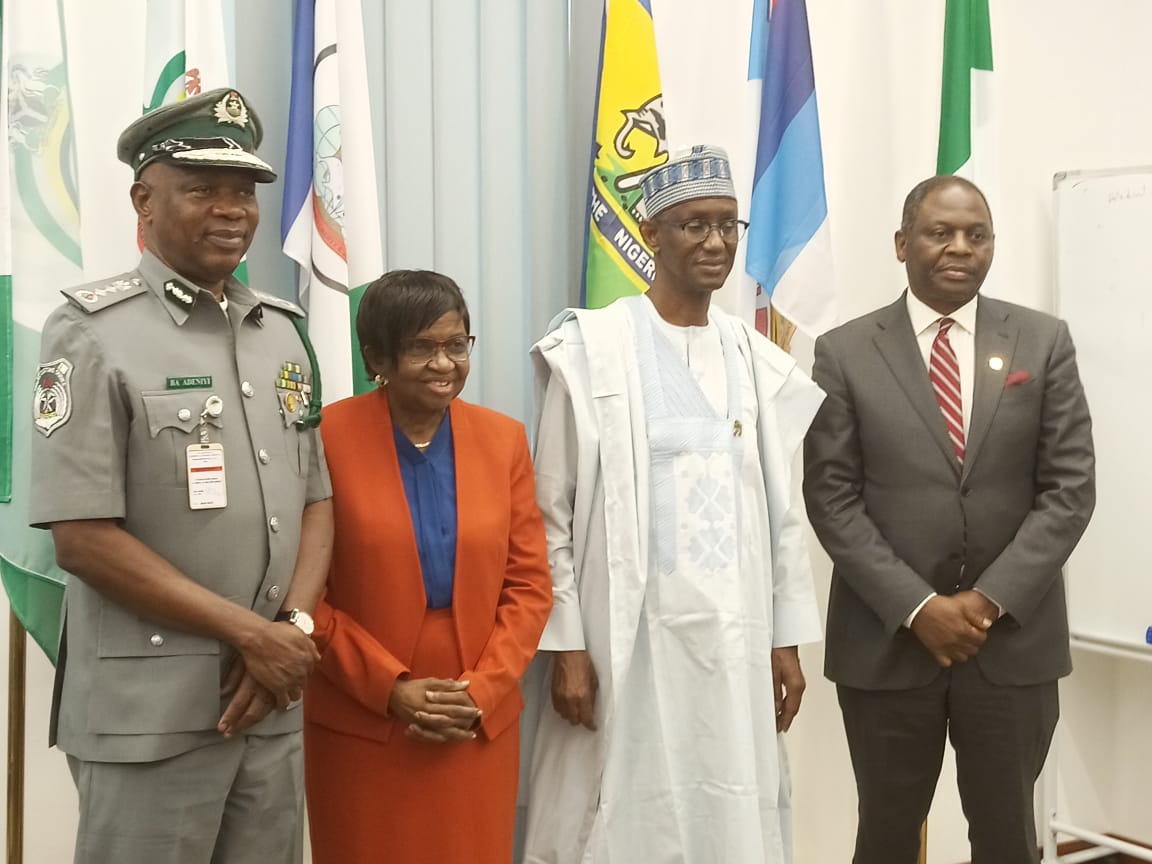By Martha Agas
The recently concluded public hearing on the proposed tax reform bills has sparked debates among stakeholders.
These include associations, agencies, experts, and government officials, all discussing the bills’ potential to create a more efficient tax system.
On Oct. 3, 2024, President Bola Tinubu submitted four tax reform bills to the National Assembly. These bills aim to overhaul Nigeria’s tax administration and revenue generation framework.
The proposed bills are the Nigeria Tax Bill 2024, the Nigeria Tax Administration Bill, the Nigeria Revenue Service Establishment Bill, and the Joint Revenue Board Establishment Bill.
During the public hearing, some stakeholders argued that these reforms would align Nigeria’s tax system with global best practices.
They believe the changes would enhance transparency, accountability, and fiscal stability.
Analysts suggest that restructuring Nigeria’s tax framework could eliminate inconsistencies, reinforce macroeconomic resilience, and stimulate economic growth.
However, in spite of these expected benefits, concerns remain over certain provisions that could hinder the smooth implementation of the reforms.
Critics warn that without necessary amendments, the bills could increase Nigerians’ financial burden, discourage investment, and render some government agencies redundant.
One major agency at risk is the Nigeria Customs Service (NCS). Some stakeholders fear the tax reform bills could negatively impact its operations and overall relevance.
As a key revenue-generating agency, the NCS plays a crucial role in trade regulation enforcement. The proposed tax reforms could directly affect its administrative procedures and legal mandate.
Experts stress that integrating customs administration with broader tax policy requires careful assessment. They highlight potential impacts on customs procedures, trade agreements, and border management.
Stakeholders argue that certain provisions in the bills conflict with the NCS Act 2023, which could lead to policy inconsistencies within the agency.
They caution that these conflicts might create enforcement challenges, operational inefficiencies, and accountability issues for the NCS if the reforms proceed unchanged.
The Association of Nigerian Licensed Customs Agents (ANLCA) noted that implementing the NCS Act 2023 only began in 2024, after more than eight years of legislative processes.
Repealing the Act, they argue, could significantly disrupt customs operations and undermine years of effort to stabilise the agency’s activities.
ANLCA’s National President, Mr Emenike Nwokeji, emphasised that the Act was designed to address longstanding policy inconsistencies, particularly in import duty collection and levies.
“In 2023, the long-awaited Nigeria Customs Act was signed into law by President Bola Tinubu, and its implementation only began in 2024.
“This is an act of parliament, yet less than 15 per cent has been implemented. Now, another tax bill is being introduced, centralising all revenue under one authority,” he stated.
He warned that without necessary modifications, the tax reform bills could create significant legal and operational conflicts with the existing customs framework.
Nwokeji urged the Federal Government to prioritise strengthening the NCS while ensuring effective coordination with other revenue agencies.
He stressed that the customs service requires specialised expertise, warning that the proposed reforms could jeopardise its critical functions.
Highlighting the financial implications, he noted that repealing the Customs Act would require significant resources to train new personnel for specialised roles.
He cautioned that it could take years to develop the expertise that customs officers have acquired through extensive experience.
In spite of his concerns, he expressed confidence that Nigeria’s government would act responsibly and preserve the NCS’s technical operations.
Customs and tax expert, Mr Okey Ibeke, reinforced this stance, stating that NCS duties extend beyond revenue collection to highly technical operations requiring expert knowledge.
He argued that the proposed tax reforms could disrupt essential customs functions if passed without appropriate amendments.
Ibeke raised concerns about the designated revenue agencies’ capacity to manage customs operations. He questioned their expertise in assessing imports and detecting misclassifications.
He warned that these agencies might struggle to identify undervalued goods, increasing the risk of inaccurate importer declarations and revenue losses.
“Customs involves classifying cargo, applying tariff regulations, and conducting valuations.
“Without trained personnel, determining duty rates and ensuring compliance will become significantly more challenging,” he explained.
He noted that NCS operations rely on Rules of Origin (RoO) to verify product sources, calculate import values, and detect fraudulent trade practices.
These complex tasks, he said, could be beyond the capacity of general tax administration systems, further jeopardising revenue collection.
Ibeke highlighted the NCS’s recent progress in modernising its operations through the Trade Modernisation Project. He warned that repealing the Act could reverse these gains.
Instead, he advocated for a balanced approach that strengthens Nigeria’s tax system without disrupting critical revenue agencies.
Similarly, the Customs Consultative Committee (CCC) voiced concerns over legislative inconsistencies, operational inefficiencies, and potential economic and security risks.
The committee’s secretary, Dr Eugene Nweke, recommended maintaining the NCS’s autonomy while reforming the Customs Modernisation Project and leveraging public-private partnerships.
Meanwhile, the Comptroller-General of Customs, Adewale Adeniyi, acknowledged that reviewing Nigeria’s tax laws was both timely and necessary.
He stated that existing tax laws no longer adequately address modern fiscal challenges, economic shifts, and technological advancements.
Adeniyi expressed confidence that the reforms would support Nigeria’s economic growth while aligning its tax system with international standards.
However, he stressed on the need for the final legislation to align with the NCS Act to preserve the agency’s core functions and efficiency. (NANFeatures)













